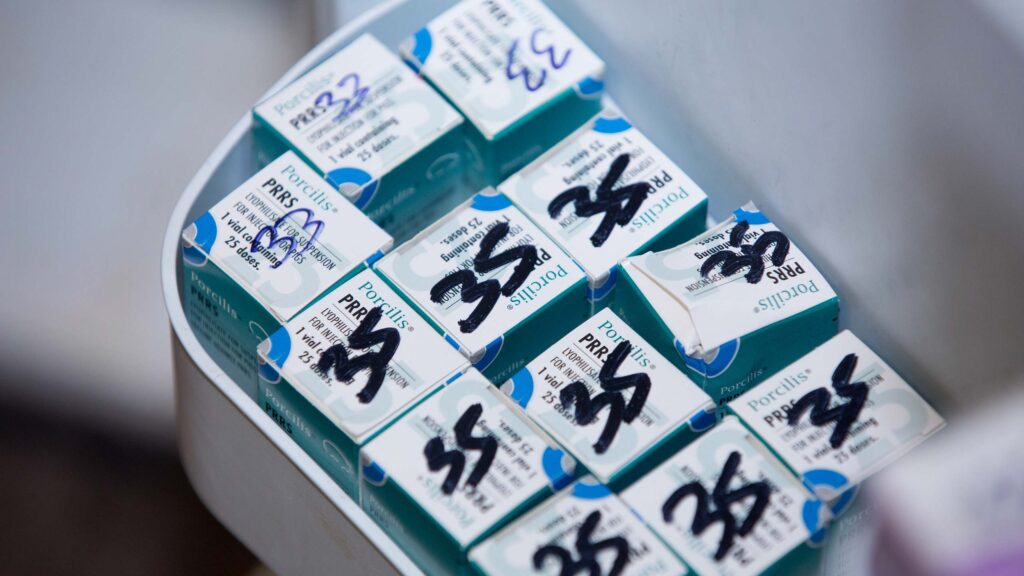Farmers urged to use grants for medical-grade vaccine fridges
 © Tim Scrivener
© Tim Scrivener Farmers in England are being urged to use the latest Farming Equipment and Technology Fund (FETF) grants to part-fund specialist vaccine fridges.
The call comes after a study by MSD Animal Health found that 84% of fridges were storing vaccines outside the correct temperature range, which could compromise vaccine efficacy and increase the risk of the product not working.
See also: Grant funding for farm kit and research – how it works
The FETF grant offers up to 50% funding towards the cost of a medical-grade fridge, which could save hundreds of pounds while protecting animal health by ensuring vaccines are stored at the correct temperature.
Keep it cool
On 19 farms surveyed across the South West of England, none of the fridges monitored consistently maintained the recommended temperature range of 2-8C.
- 84% of the fridges recorded at least one reading above 8C, with a maximum temperature of 24C.
- 58% of fridges recorded temperatures at or below 0C, with the lowest being -12C.
- In many cases, temperatures were outside the safe range for long enough to negatively affect vaccine efficacy.
Paul Williams, technical manager for ruminants at MSD Animal Health, said: “Animal health vaccines are extremely fragile, and once damaged, the effect is irreversible – you can’t tell by looking at them if they’re still effective.
“If you’re storing vaccines on farm, you should be checking the maximum and minimum temperatures daily.
“If they’re outside the 2-8C range, something needs to be done.”
Best practice
Mr Williams also reminds farmers to:
- Avoid placing vaccines at the back of the fridge, where they may freeze, or in the door, where temperatures fluctuate each time it’s opened.
- A fridge’s age, location and surrounding temperature can all affect its performance.
- Domestic fridges are designed for room-temperature environments and cannot warm contents, only cool them.
“In an ideal world, vaccines shouldn’t be stored on farm at all – but if they are, they should be used as soon as possible and transported in a cool bag,” he says.
“Vaccinating a large number of animals takes time, so don’t take all the vaccine out of the fridge at once.”
